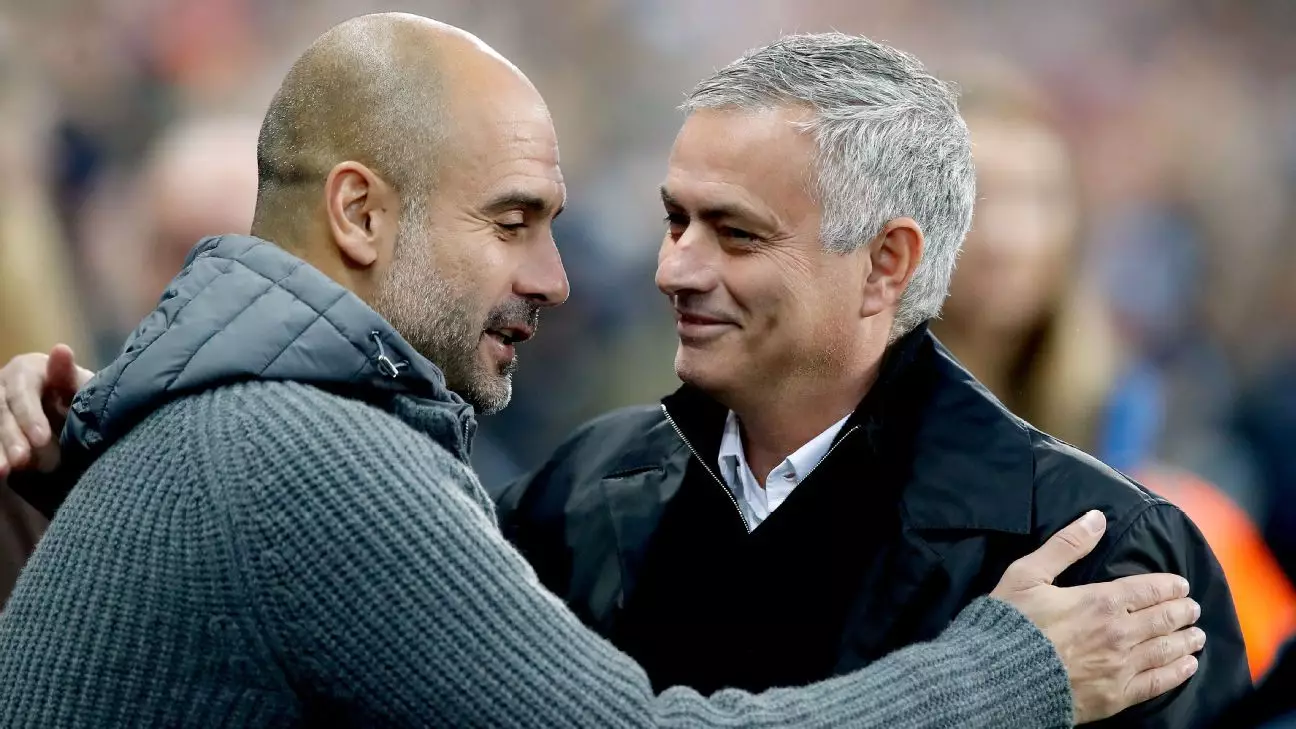In the competitive world of football, particularly in the Premier League, rivalries can extend beyond the pitch into personal narratives. Recently, José Mourinho defended the integrity of his three Premier League titles, earned during his successful spells at Chelsea, in reaction to comments made by Pep Guardiola. Guardiola, who has basked in the glory of six top-flight triumphs, wielded his success as a rhetorical weapon, especially after Manchester City’s defeat to Liverpool, showcasing his victories in a mocking gesture to the home crowd. Such displays exemplify the fierce pride both managers hold regarding their accomplishments and the careers they’ve built.
Guardiola’s comments came at a time of scrutiny for Manchester City, as they face serious allegations concerning their financial conduct within the league. These ongoing investigations have led to questions about the legitimacy of their achievements during the periods under scrutiny, thus casting a shadow over Guardiola’s otherwise sparkling record. Mourinho, possessing a keen sense for the narrative in football, seized this moment to remind fans and the media that his success came without controversy. His assertion, “I won fairly and cleanly,” aims to reinforce the honor he associates with his titles, emphasizing not just the number, but the method in which they were acquired.
Mourinho’s retort is not merely a defense; it symbolizes an overarching theme in the careers of both coaches. Mourinho’s tactical mastery has often been overshadowed in recent years by a league that increasingly favors a different brand of attractive, possession-based football epitomized by Guardiola. However, as Mourinho pointed out, the essence of competition is also about recognizing the merit of opponents and the conditions under which victories are achieved. In historical context, his success, often heralded for its intelligence and pragmatism, stands alongside Guardiola’s flair, creating a rich tapestry of managerial contrasts in English football.
As both coaches navigate their current realms—with Guardiola seeking redemption after a disappointing loss and Mourinho working to reinforce his pedigree with Fenerbahce—the football world watches with bated breath. The narrative that unfolds reflects not only on their individual legacies but also on the way football evolves over time. Will City’s titles be sullied in the court of public opinion, allowing Mourinho to reclaim some lost prestige? Or will Guardiola’s legacy as one of the game’s greats remain intact despite the swirling clouds of controversy?
The exchanges between Mourinho and Guardiola go beyond mere statistics; they highlight the complexities of modern football, where accolades are often contested by underlying factors like ethics and governance in the sport. For fans and pundits alike, this rivalry encapsulates the essence of competitive spirit and the enduring need to defend one’s legacy in the ever-evolving narrative of football history.

